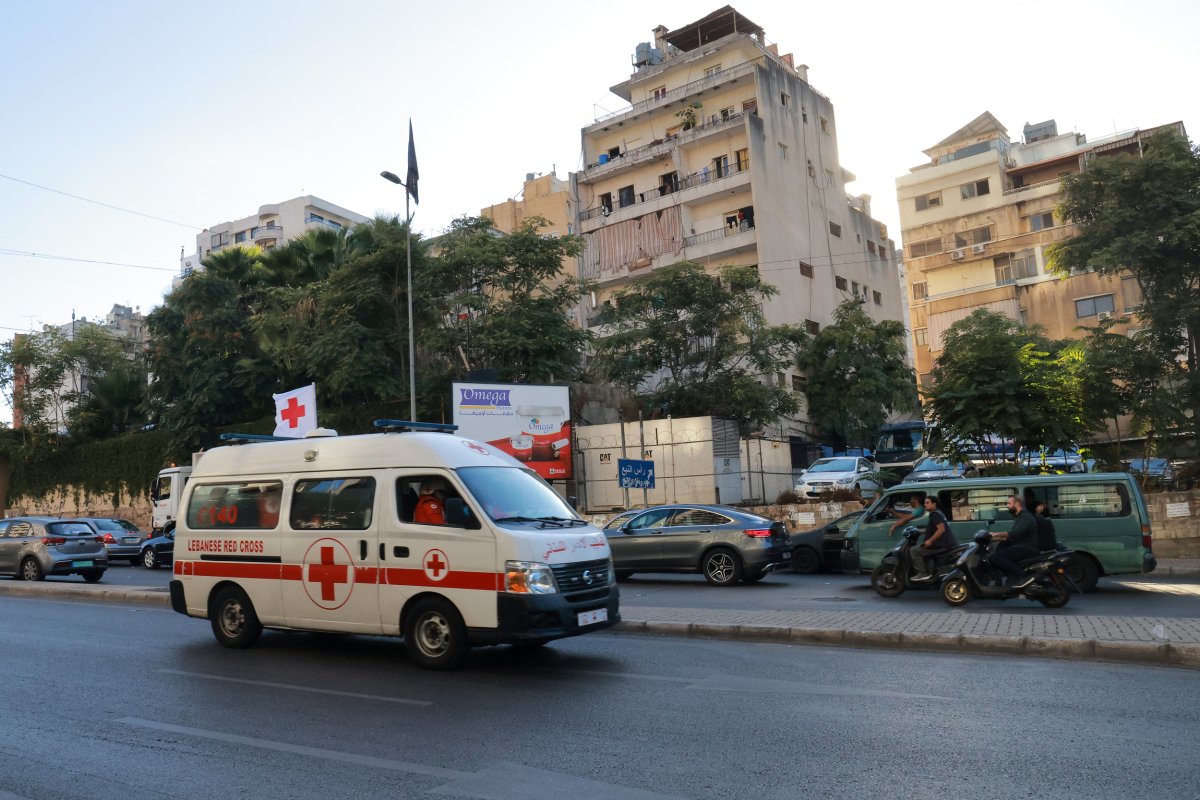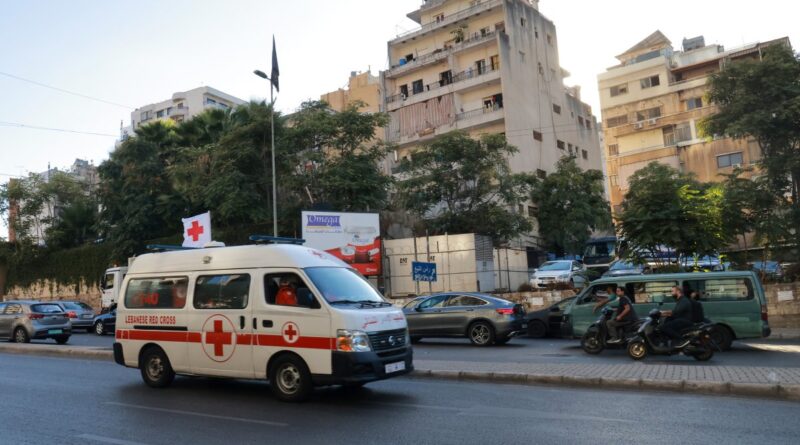Lebanon’s health system is “under siege” amid Israel’s military campaign
As Israel’s more than two-month military campaign in Lebanon against Hezbollah continues, Lebanon’s medical system is under pressure, facing a lack of resources, mass exodus, and staff exhaustion. , delayed treatment, and the closure of health services, leading to one doctor to explain. condition to Newsweek as “under siege.”
Towards the end of September, Israel moved north, launching a ground military operation in Lebanon, which led to mass displacement, instability and civilian casualties and death in the country. The ground and air raids come as Israel seeks to return thousands of displaced Israelis to their northern territories and eradicate Hezbollah, a militant group with deep ties to Hamas.
On October 7, 2023, Hamas, a Palestinian militant group, attacked Israel and killed approximately 1,200 people and captured 250 hostages. Hezbollah supported the group’s attack and engaged in rocket fire and airstrikes. borders with Israel last year. In late September, Israeli forces captured longtime Hezbollah leader Hassan Nasrallah.
The last year of war saw a huge humanitarian crisis across the region. In Lebanon, Israel killed more than 2,574 people and injured more than 12,000, according to the country’s Ministry of Health. More than 1.2 million people have been driven from their homes, most of them from southern Lebanon where conflict is frequent. It is not clear how many Israelis Hezbollah has killed, with the group’s latest statement, which did not give a time frame, saying more than 70 Israeli soldiers.
President of the American University of Beirut (AUB) Dr. Fadlo Khuri said Newsweek in a phone interview last Saturday that “every part of the education, health and municipal systems are currently blocked” in Lebanon.
He added: “But so far, the health system as a whole is moving forward, albeit under pressure.
The opinion of Dr. Khuri came a few days before Israel struck near the Rafik Hariri University Hospital in Beirut. Israel said the hospital was not affected by the strike, while the hospital director noted that waste had caused damage to the facility, according to Reuters.
Newsweek reached out to several medical centers in Beirut as well as humanitarian organizations and the Lebanese Ministry of Health for comment via email. Newsweek also reached the Israeli prime minister’s office for comment by email on Sunday.
A spokesman for the Israel Defense Forces (IDF) said. Newsweek in an email Monday morning, “The IDF has been operating in Lebanon for the past month against Hezbollah, a terrorist organization, whose modus operandi is to hide and infiltrate civilians and infrastructure. As shown in the past, Hezbollah is use ambulances and other medical equipment for terrorist operations and immerse themselves in civilians.”
The statement continued: “The IDF has been making great efforts to prevent civilian casualties, including issuing warnings and notifications before attacks, and pursuing additional measures through protected areas, which such as medical institutions. Those warnings are given according to international humanitarian law.

IBRAHIM AMRO/AFP via Getty Images
Problems in the Lebanese Medical System
The conflict has had a major impact on the medical system, with the United Nations World Health Organization (WHO) noting earlier this month that an increasing number of health centers in Lebanon have been forced to close due to the outbreak. strength and insecurity, to report that. “out of 207 primary care centers and dispensaries in conflict-affected areas, 100 have been closed.”
On October 25, the Director-General of the WHO, Tedros Adhanom Ghebreyesus, reported that the organization “recorded 53 attacks on health care in Lebanon last year, including the death of 99 patients and health workers. ” He added that “health care facilities and service providers must be protected at all times.”
Dr. Hanan Balky, WHO’s Regional Director for the Eastern Mediterranean, said in a press release in mid-October: “The situation in Lebanon is frightening. The whole community has access to health services at a time when they need them the most.”
As medical staff and residents have left their homes, it is difficult to operate a hospital in some areas in the south. Dr. Khuri noted that staff fatigue and limited resources are also weighing on the health system.
Hospitals do not have enough equipment, and Dr. Khuri emphasized that “sutures and items for complex operations in the eyes, hands, etc., are not things that hospitals usually keep for months and years,” due to the increasing demand. are limited.
Dr. Khuri also noted the added difficulty of treating displaced patients who arrive without medical records.
The Director of the International Rescue Committee (IRC) in Lebanon, Juan Gabriel Wells said in a press release earlier this month, “We are seeing dire gaps in health care, with severe shortages of medicine and limited access to services affecting the elderly, children and those with chronic conditions.” The humanitarian team has organized a medical team in the country.
Big bangs and bangs can hit the system hard. Last month’s pager bombings across Lebanon in what is believed to be an Israeli operation targeting members of Hezbollah have had an “overwhelming” impact on the health system and marked an influx of the highest number of patients at the AUB medical center Dr. Khuri said so. Newsweek last week.
Israel has not publicly claimed responsibility for the pager attacks or denied responsibility, however, a US official, speaking on condition of anonymity, told the Associated Press that Israel had notified the US of the operation.
He recalled the waves of people with “dangers that the medical system doesn’t recognize” were flooding in, and when the attack targeted Hezbollah members, he said “a few people seemed to -have pagers in their hands. wrong time,” including women and children. Many were killed and maimed, with common injuries including hand and eye injuries. to check pagers.
Standard Medical Care: ‘Treatment Delay’
One of the health problems of the hospital and the population is that patients who need regular care do not come to the hospital for their regular treatment because of conflicts.
People “are being treated only for acute medical care. We do not have the ability to maintain their regular medical care and non-emergency medical care,” Dr. Khuri said, when talking about cancer, heart disease, heart disease, coronary artery disease. , diabetes, hypertension, among others. Intensive care usually means short-term but very intensive surgeries.
“So even among our sick patients, people are afraid to come to the hospital at this time and take care of their illnesses,” he explained. “Cancer patients and cardiovascular patients choose to stay at home and wait it out. In fact, it’s a very serious thing. Heart disease is the number one killer in the world, cancer is the second the best.”
When asked by Newsweek regardless of whether he believed that the hospital would be targeted by Israel, Dr. Khuri said, “The big teaching hospitals have not been targeted. I hope it stays that way.”
In addition, in the health issues of patients who do not receive their usual care, the health system “loses the tools of urgent care, urgent care and doing it with special care, even if that special care saves life or prolongs it.” Emergency room treatment, especially with new, undiagnosed patients is a “big financial loss,” for the system.
Update 10/28/24, 9:03 am ET: This article has been updated to include IDF comments.
#Lebanons #health #system #siege #Israels #military #campaign
